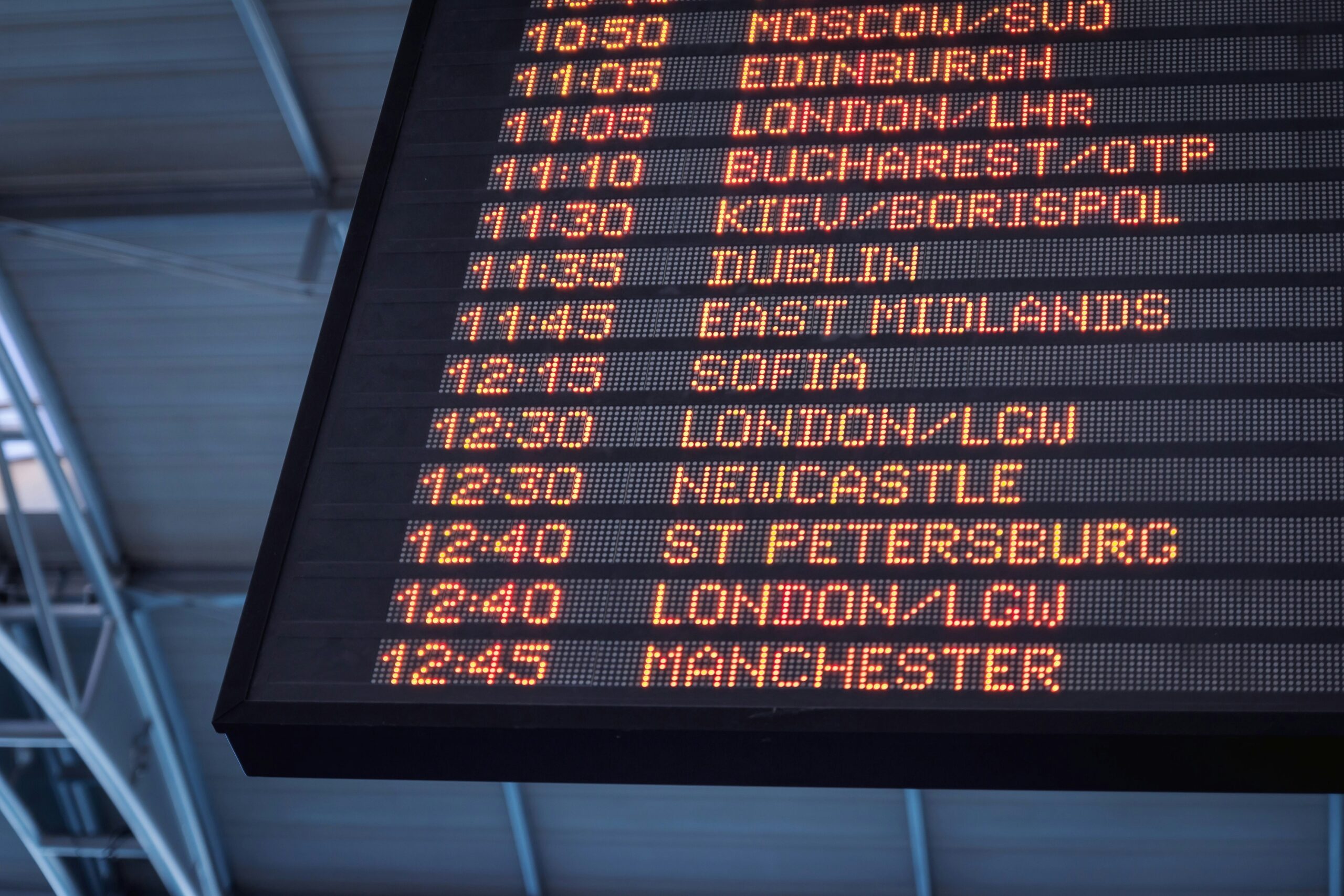Table of Contents
- 1 The Role of AI in Personalised Travel Planning
- 2 Virtual and Augmented Reality: Transforming Destination Experiences
- 3 Improving Travel Convenience and Efficiency
- 4 AI-Enabled Services for Travel: From Inspiration to Return
- 5 The Evolving Landscape of Travel Sector Technology
- 6 Cultural Immersion and AI: Enhancing the Travel Experience
- 7 Sustainable Travel Innovation Through Artificial Intelligence
Artificial Intelligence (AI) is transforming the travel industry by creating exclusive, personalised travel itineraries that cater to individual preferences. AI’s ability to analyse large amounts of data allows for highly customised travel plans, making your trips more efficient and enjoyable. From picking the best flight options to suggesting hidden gems at your destination, AI ensures that every aspect of your journey is tailored to your unique needs.

AI-driven technologies bring seamless experiences to travellers. With features such as automated customer service, voice recognition, and real-time translations, your travel experience becomes smoother and more enjoyable. These innovations not only save time but also enhance the overall travel experience by removing language barriers and simplifying complex travel arrangements.
The Role of AI in Personalised Travel Planning
Travellers are increasingly relying on artificial intelligence to transform how they plan their trips, from creating tailored itineraries to ensuring smooth reservations and enhancing day trips.
Crafting Custom Itineraries
AI leverages vast datasets, including historical travel data and customer feedback, to craft custom itineraries that match your preferences. By analysing your travel history and social media interactions, AI can identify patterns and predict your desired activities. This means your travel plans can include just the right balance of adventure, relaxation, and sightseeing.
For example, if you enjoy cultural experiences, AI can suggest museums and local festivals, ensuring your itinerary aligns with your interests. This personalised approach saves you time and makes your trips more enjoyable. The integration of AI and travel planning is the perfect combination, enhancing every aspect of your travel experience.

Streamlining Reservations and Accommodations
AI virtual assistants simplify the process of booking reservations and accommodations. By using your travel preferences and budget, these tools can find the best flights and hotel deals. They can also adjust recommendations in real time if your plans change unexpectedly.
AI systems can handle multiple tasks efficiently. From securing dining reservations to booking tickets for local attractions, everything is tailored to your needs. This integration allows for a seamless experience, ensuring all your travel arrangements are in sync.
Enhancing Day Trips with AI Integration
Day trips are made more exciting and efficient, thanks to AI integration. AI can recommend activities for your day trip based on weather forecasts and real-time events happening in the area. This ensures you make the most of each day, whether it’s visiting a famous landmark or enjoying a hidden gem.
AI-powered tools can also navigate local transport options and provide up-to-date information about your destinations. This helps you avoid common travel woes like traffic jams or long queues, making your day trips hassle-free and more enjoyable.
Virtual and Augmented Reality: Transforming Destination Experiences
Virtual reality (VR) and augmented reality (AR) are changing how you travel and experience new destinations. These technologies help you preview locations, navigate cities, and uncover hidden gems with personalised adventures.

Previewing Destinations with Virtual Reality
Virtual reality lets you explore destinations before your trip. For example, you can virtually explore the Grand Canyon to get a sense of its vastness and beauty. By using VR headsets, you can virtually walk through landmarks, hotels, and local attractions. This helps you decide if a place is worth visiting.
You can see famous landmarks like the Eiffel Tower or the Great Wall of China and feel as if you are actually there. This immersive experience is beneficial for planning as it reduces uncertainty and increases excitement.
Augmented reality apps are helpful when you are exploring a new city. Using your smartphone, AR overlays digital information onto your view of the real world. This can guide you to important landmarks, restaurants, and shops.
Apps like Google Maps with AR can show you directions in real time, making navigation simpler. You can also use AR to learn about historical sites, as it provides educational details directly on your screen while you walk through the city.
Hidden Gems and Tailored Adventure Discovery
AR and VR are also great for discovering hidden gems and personalised adventures. AR apps can highlight lesser-known spots that are off the beaten path, offering you unique experiences away from typical tourist areas.
VR travel experiences can suggest activities tailored to your interests, whether that is hiking trails, secret beaches, or local festivals. By combining AI with AR and VR, you can create a travel itinerary that feels personal and adventurous.
These tools help you find and book activities that you might have missed otherwise, ensuring a richer and more fulfilling travel experience.
Improving Travel Convenience and Efficiency
By leveraging AI, the travel industry can streamline operations and make trips smoother for travellers. These advancements include optimising flight logistics and using AI-driven technology to predict weather and traffic conditions.

Optimising Flight and Travel Logistics with AI
AI can significantly enhance flight logistics and overall travel efficiency. Airports use AI to manage flight schedules, ensuring flights are on time and delays are minimised. This helps in reducing congestion and waiting times. For instance, AI systems analyse data on flight routes, air traffic, and historical delay patterns.
Travel apps can recommend the best flights and even reschedule trips quickly in case of cancellations. This is achieved through machine learning models that predict demand and adjust resources accordingly. With real-time data processing, AI can also assist ground staff in managing logistics, such as baggage handling and gate assignments, further improving the travel experience.
AI-Driven Weather and Traffic Predictions for Better Planning
Planning a trip involves understanding weather and traffic conditions, and AI can help in this area too. AI models analyse vast amounts of weather data to provide accurate forecasts, which can be crucial for flight safety and scheduling. This helps airlines to prepare for and mitigate delays caused by adverse weather conditions.
Traffic predictions improve travel planning by suggesting the best routes and departure times. AI-powered applications use real-time traffic data from various sources to identify congestion patterns and suggest alternative routes. This way, you can avoid traffic jams and reach the airport on time.
AI-Enabled Services for Travel: From Inspiration to Return
AI has transformed travel by offering personalised services at each stage of your journey. These innovations help with everything from planning and booking your trip to enhancing your travel experiences and offering valuable insights for your future holidays.
AI as a Travel Advisor for Booking and Visiting
Artificial intelligence acts as a powerful travel advisor, helping you with every step of your journey. When planning, AI tools provide tailored trip inspiration by analysing your preferences and searching for the best hotels, restaurants, and activities, making it just something that suits various travel needs. For example, many travellers are using these tools for trip inspiration and itinerary planning.
AI-powered booking platforms streamline the reservation process, allowing you to book flights, hotels, and activities seamlessly. AI chatbots answer your questions instantly, enhancing your planning phase.
During your visit, AI assists in navigating unfamiliar places through personalised recommendations and real-time updates. Language translation tools can ease communication barriers, and virtual guides can provide historical and cultural insights about destinations.
Post-Trip Services: Leveraging AI to Enhance Future Travel
Your journey doesn’t end when you return home. AI continues to play a role in enhancing your future travels by collecting and analysing data from past trips. Companies use this data to offer you even more personalised recommendations for future holidays.
AI helps in collecting feedback on hotels, restaurants, and attractions, helping businesses improve their services. By analysing this feedback, AI tailors future travel suggestions to match your evolving preferences. This creates a more customised experience for your next trip.
These post-trip services also allow you to store and share travel memories, such as photos and reviews, in a centralised platform. This not only helps you cherish your experiences but also provides valuable insights for planning your future adventures, making memories that will last a lifetime and enriching your life.
The Evolving Landscape of Travel Sector Technology
As technology advances, the travel industry is experiencing significant changes. This section covers the current state of travel tech and the balance between human touch and automation.

Current State and Future Outlook of Tech in Travel
The travel sector is making rapid strides with technology. AI is at the forefront, enhancing both customer service and operational efficiency. Companies are tapping into AI to offer personalised recommendations, streamline bookings, and improve customer support.
Emerging trends like biometric verification and mobile check-ins are reducing wait times and enhancing security. The future looks promising with innovations such as autonomous transport and virtual reality tours, potentially transforming how you experience travel.
For example, AI is enabling travel companies to analyse customer data, predict preferences, and offer customised itineraries. These changes aim to make your journey more convenient and enjoyable by focusing on personalisation and efficiency.
Balancing Human Touch with Automation
While automation provides efficiency, maintaining a human touch remains crucial in the travel industry. AI-driven chatbots and virtual assistants can handle basic inquiries and booking processes, but they cannot fully replace human interaction.
Travel agents and customer service representatives play a key role in resolving complex issues, offering empathy, and ensuring customer satisfaction. Balancing technology with a human presence ensures a seamless travel experience.
For instance, many high-end hotels employ concierge AI services to handle routine tasks, while human staff focus on delivering exceptional, personalised experiences. This blend of AI and human touch aims to offer the best of both worlds—efficient service and warm hospitality.
Cultural Immersion and AI: Enhancing the Travel Experience
Artificial Intelligence (AI) is changing how travellers experience culture by offering new ways to engage with museums and historical sites and providing tools to bridge language barriers and connect more deeply with local customs.

Virtual Tour Guides: Museums and Historical Sites
AI-powered virtual tour guides provide an interactive way to explore museums and historical sites. Using your smartphone or VR headsets, these guides offer rich, detailed information about exhibits and landmarks.
You can see 3D models of artefacts, watch historical reenactments, and even participate in interactive quizzes. These experiences make learning about history more engaging and immersive. For those who cannot visit in person, virtual tours bring world culture and history into their homes, allowing everyone to explore global treasures.
Language and Customs: AI for Deeper Connection
AI helps travellers connect more meaningfully with new cultures by breaking down language barriers and offering insights into local customs. With AI-powered translation apps, you can easily communicate with locals, read signs, and understand menus.
Moreover, AI suggests cultural norms and etiquette, ensuring respectful interactions. For example, it can advise you on appropriate greetings, dress codes, and dining manners specific to the destination you are visiting. This technology enhances your travel experience by promoting understanding and respect for the diverse cultures you encounter.
Sustainable Travel Innovation Through Artificial Intelligence
AI is playing a crucial role in making travel more sustainable. By using advanced algorithms, it is enhancing eco-friendly routes, promoting energy-efficient travel and positively impacting conservation efforts and local communities.
Eco-Friendly Routes and Energy-Efficient Travel
Artificial intelligence helps you find the most eco-friendly travel routes. Modern AI systems analyse traffic patterns, weather conditions, and fuel consumption to suggest the most energy-efficient paths. This not only saves fuel but also reduces carbon emissions.
When planning your holiday, AI can help you choose airlines with the best environmental records or suggest travel times to avoid peak traffic, further minimising your carbon footprint.
AI can also optimise public transport schedules to make them more efficient. This helps reduce the number of vehicles on the road, contributing to less pollution. By integrating ride-sharing and electric vehicle options, AI promotes greener travel alternatives. These innovations ensure that your travel is not just convenient but also environmentally responsible.
Impact of AI on Conservation and Local Communities
AI supports conservation efforts by monitoring wildlife and natural habitats. Conservationists can track animal movements and detect illegal activities like poaching using AI-driven drones and sensors. This technology helps protect endangered species and ensures that natural reserves remain undisturbed by human activity.
AI also benefits local communities by promoting sustainable tourism practices. It can provide recommendations for eco-friendly accommodations and activities, ensuring your vacation supports the local economy without harming the environment. By analysing data from various sources, AI suggests responsible travel options that benefit both tourists and local residents. You can enjoy a memorable holiday while contributing to conservation and the well-being of communities.






